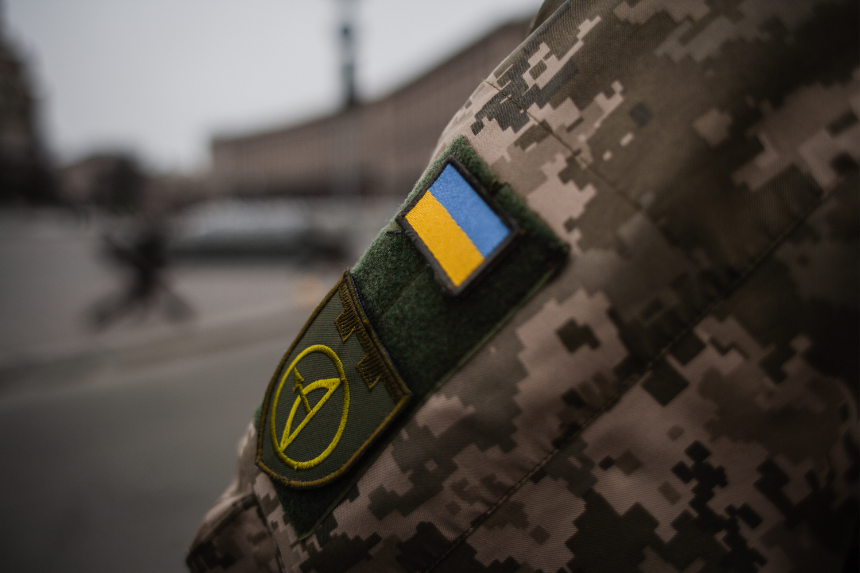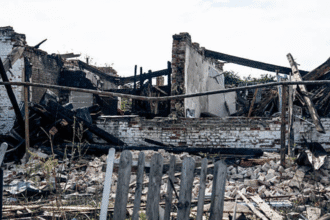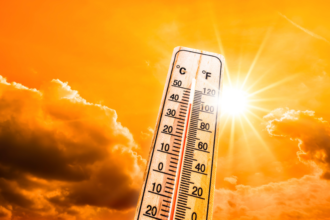Senior military officers from the “coalition of the willing” are gathering in the United Kingdom for a closed conference on Thursday as they finish preparations for a projected Ukraine peacekeeping force. This project, which is approaching an operational stage, is thought to involve more than twenty nations.
Lead by Britain and France, senior military officials from the countries forming the alliance will gather at the UK’s Permanent Joint Headquarters in Northwood to address how the Ukraine peacekeeping force would operate in reality.
Minister of Armed Forces Luke Pollard underlined that the alliance strives to be a “credible force” able to guarantee Ukraine’s long-lasting peace and assist the country with rearmaments and reconstitution. He underlined that close coordination between coalition forces, superior military logistics, and a clear mandate preventing escalation while giving Ukraine the required security assurances determine the success of this mission.
The choice to proceed with an operational plan reflects mounting worries that Ukraine is still susceptible to more attack. To make sure Ukraine stays sovereign and safe, the coalition of willing countries has promised to investigate several paths, including diplomatic negotiations, financial aid, and military deterrent.
Why Is the UK Assuming Leading Responsibility?
After visiting Barrow, where he will lay the keel of HMS Dreadnought, one of Britain’s next-generation nuclear-armed submarines, Prime Minister Sir Keir Starmer is due to attend part of the conference.
Starmer will point out Barrow as a “blueprint” for how defense expenditure may help nearby areas on his trip. The King has promised Barrow the title of “Royal” in honor of his achievements to national security as part of his statement. The title “Royal” is expected to confirm Barrow’s position as a major center for Britain’s military-industrial complex and help to emphasize its involvement in defense manufacture.
Later in the day, the Prime Minister also met the British nuclear submarine HMS Vanguard’s crew as it returned to Scotland after North Atlantic missions. Emphasizing the value of the UK’s nuclear deterrent, he said, “What is absolutely crucial is they recognize that it is what it is—a credible capacity. And most surely is also.”
Attaching Starmer on the visit, Defense Secretary John Healey confirmed the government’s “unshakeable” dedication to the nuclear deterrent of the United Kingdom, labeling it “the ultimate guarantor of our national security and the security of our NATO allies.” He also underlined how important it is for the UK to keep strategic stability in Europe by ongoing nuclear defense expenditure.
What Obstacles Exist for This Peacekeeping Effort?
There are still major challenges to the deployment of a Ukraine peacekeeping force notwithstanding the efforts of the alliance. Russian President Vladimir Putin has made it quite evident that, independent of their position, Moscow will not accept the presence of any NATO member soldiers in Ukraine.
Furthermore, some coalition members have voiced worries on the degree of help needed, especially with relation to air cover. The United States has been slow to provide the required aircraft protection that many other countries view as absolutely vital for the mission’s success. The absence of air support begs major issues regarding the viability of maintaining a long-term deployment of peacekeeping for Ukraine without running the danger of direct conflicts with Russian forces.
Declaring, “Putin won’t stop if he wins in Ukraine,” Luke Pollard cautioned of the wider consequences should Russia take over Ukraine. Should Putin subjugate all of Ukraine—which is his intended course of action and has been for many years—he will only rearm and search for another area where he can exert his dominance. That is not in our national interest, most definitely not in the interest of our friends from Europe.
Any peacekeeping force has to be properly balanced in order to prevent inadvertent escalation, according to political analysts. Although the coalition seeks to offer security, Russia could use the presence of foreign forces in Ukraine as grounds for more military intervention. Both NATO members and non-NATO ones are hotly discussing these issues.
Are troops on the ground?
Pollard said that although specifics of the operation are still under development, maintaining peace in Ukraine could call for “some boots on the ground.” He did, however, also underline that the Ukraine peacekeeping force will have “a strong feature of air and marine forces,” therefore stressing a multifarious way of helping Ukraine. Ground forces, according to military analysts, most likely play non-combat missions such training, logistics, and humanitarian aid alone.
One such approach under discussion is a rotational presence whereby several allies provide forces for brief deployments to reduce the possibility of extended entanglement. Moreover, guarantees of the efficacy of the Ukraine peacekeeping force depend on sophisticated monitoring and intelligence-sharing features.
The coalition aims to create a structure that guarantees stability in Ukraine while balancing the geopolitical concerns related with putting military soldiers in an active war zone as talks on this matter go. The diplomatic component of the mission will be quite important since different governments stress the need of negotiations in addition to military preparation.
As authorities strive upon a credible and lasting strategy for guaranteeing peace and security in the area, the Northwood conference marks a pivotal moment in confirming these intentions.
Future Events Regarding the Ukraine Peacekeeping Mission?
Looking ahead, the alliance has to finish important operational and logistical aspects before any deployment can start. Countries engaged in the mission have to make decisions about troop pledges, guidelines of behavior, and cooperation with Ukrainian forces. Furthermore influencing the speed and scope of the mission’s execution will be political factors inside involved countries.
While NATO-backed operations would give strong logistical assistance, a non-NATO coalition might perhaps lower tensions with Russia. One of the most important concerns still is whether the Ukraine peacekeeping force would operate under a NATO framework or an independent multinational coalition.
Ukraine has meanwhile constantly underlined its need for ongoing military and financial backing from Western friends. The Ukrainian government claims that a well-funded peacekeeping project will assist to discourage more aggression and reconstruct areas devastated by war.
The worldwide community will closely monitor how this project develops while the alliance plans its future actions. The outcome of this operation could have long-standing effects on European security as well as the larger balance of power between NATO and Russia.
Even if obstacles still exist, the coalition’s will shows unequivocally a dedication to Ukraine’s sovereignty. The result of these conversations will define how Western countries negotiate one of the most complicated geopolitical crises in recent history, therefore influencing the next stage of the stability of the area.








